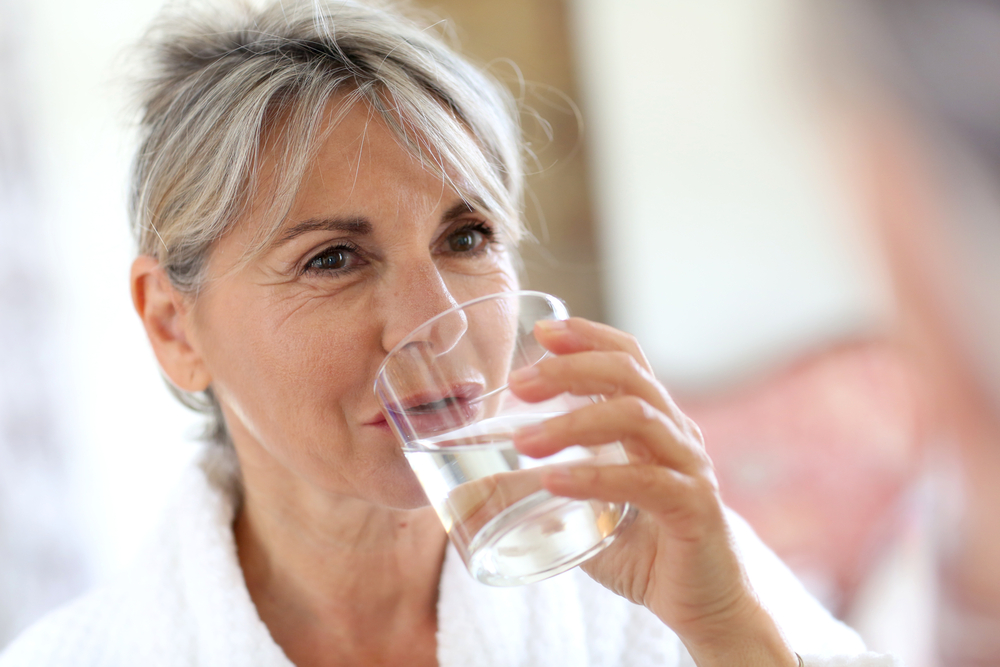Tips and Tricks to Prevent Senior Dehydration This Summer
Seniors are much more likely to become dehydrated than younger adults. The risk is particularly high during the hot summer months due to increased sweat production.
Unfortunately, many seniors simply don’t get enough water in their diets because of certain barriers to proper hydration and nutrition. With a little help and guidance, though, they can get the adequate hydration they need to live a healthy life.
The Risks
Dehydration isn’t just about feeling thirstier than usual, although this can be a symptom. Technically speaking, being dehydrated means the body lacks the water it needs to remove toxins, pump blood and function properly.
Seniors who do not stay hydrated may develop the following symptoms and conditions:
- Dry mouth
- Headaches
- Mental fogginess and forgetfulness
- Kidney stones
- Urinary tract infections
- Low blood pressure
- Racing heartbeat
- Fainting
Seniors and Dehydration
You may assume that a senior who needs to use the bathroom frequently, has light colored urine and doesn’t feel thirsty must not be dehydrated. This is an untrue and unsafe assumption.
Seniors’ bodies function differently than younger bodies. The brains of older adults may not send thirst signals until the body is severely dehydrated, and their kidneys do not filter out waste as quickly, resulting in less concentrated urine.
There are also a number of unique situations faced by seniors that put them at increased risk of dehydration, such as:
- Medications – Some medications act as diuretics that cause patients to urinate more frequently. Diuretics are often used to treat high blood pressure, glaucoma and edema.
- Memory problems – Seniors are more likely to develop dementia or experience forgetfulness and may need a reminder to drink water.
- Limited mobility – Some seniors may not be able to get up and fetch themselves a glass of water without help.
- Fear of accidents – Seniors may purposely avoid water because they do not want to deal with frequent visits to the restroom or are afraid of having an accident and feeling embarrassed.
Ways to Improve Hydration
Now that you understand the difficulties seniors have with hydration, you can work around them with specific solutions, such as:
- Making water available – Sometimes we simply need to trick ourselves into drinking more water. Keep a cup, water bottle, cooler, sink or fridge constantly available for your loved one so they can get a drink with little effort. If they have limited mobility, make sure their caregiver is attending to their needs and can be contacted easily.
- Giving reminders – Even when water is available, some seniors mistakenly assume they’re hydrated. In this situation, a caregiver may need to remind them to drink, or they may need to schedule a timer that serves as a cue to hydrate.
- Trying new temperatures – Preferences may be getting in the way of hydration. Try experimenting with piping hot cups of tea or ice water to see what your loved one likes best.
- Offering other drinks – Water is healthiest for most of us since it isn’t loaded with sugar or salt. However, some seniors may refuse to drink water regardless of temperature. Try fruit infused water, flavored water, fruit juice, tea, coffee, broth, smoothies, slushies or even shakes as long as they won’t cause any adverse health effects. You can also make delicious mocktails for a splash of summer flavor.
- Preparing hydrating foods – Plenty of fresh fruits and vegetables are at least 90 percent water, like watermelon, strawberries, cantaloupe, tomatoes, lettuce, cucumbers, celery and zucchini.1 Soups and stews are a good alternative for those looking to hydrate with a hearty meal.
- Managing incontinence – If your loved one has incontinence, establishing a regular bathroom schedule can prevent accidents from occurring. Incontinence products like pads or underwear can serve as a backup in case your loved one is late getting to the bathroom.
Staying Healthy at Twin Lakes Community
At Twin Lakes Community, we understand that seniors have different health needs than younger adults and deserve access to programs that meet those needs. We offer nutritional classes through our Thrive wellness program to ensure residents stay up-to-date on the latest healthy eating habits. Residents can also eat delicious meals at The Pepper Tree Café and The Terrace restaurant or order takeout and home delivery. Call us at 336-538-1572 today to schedule your tour of our community.



